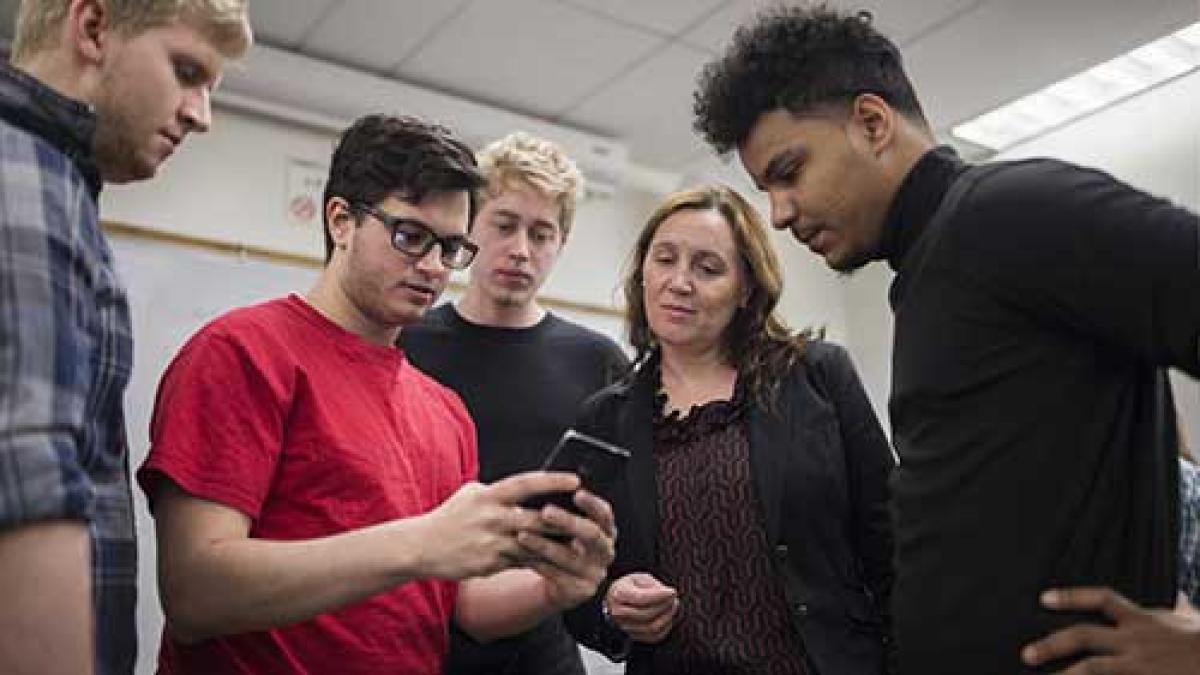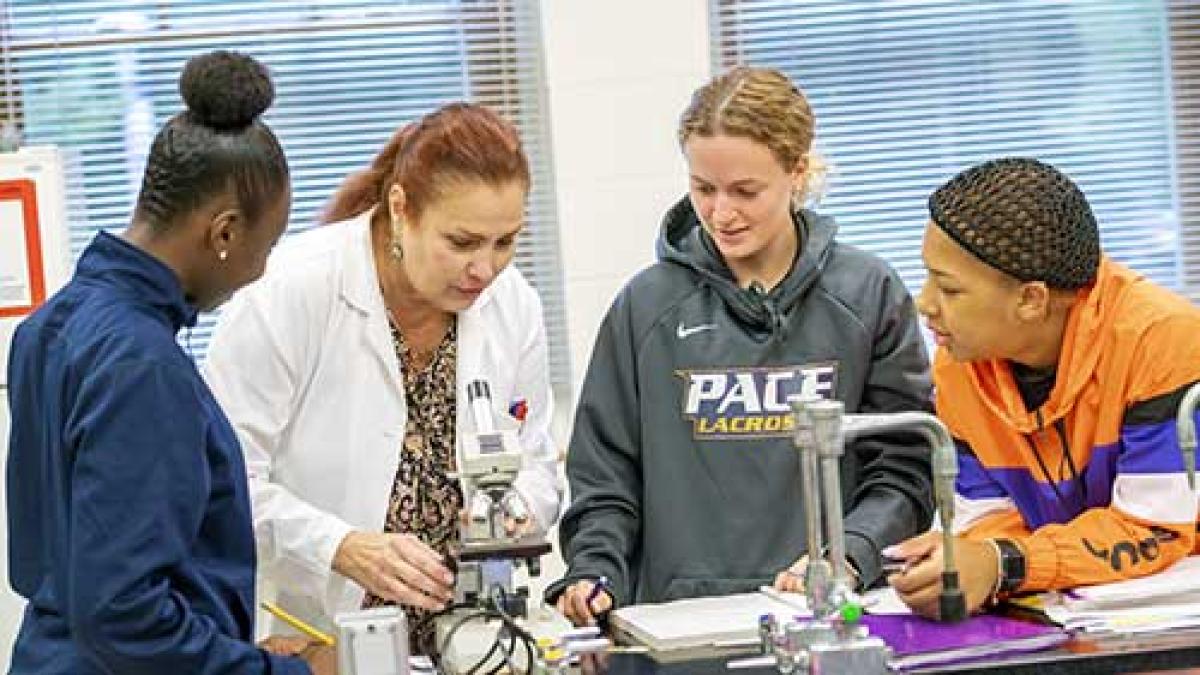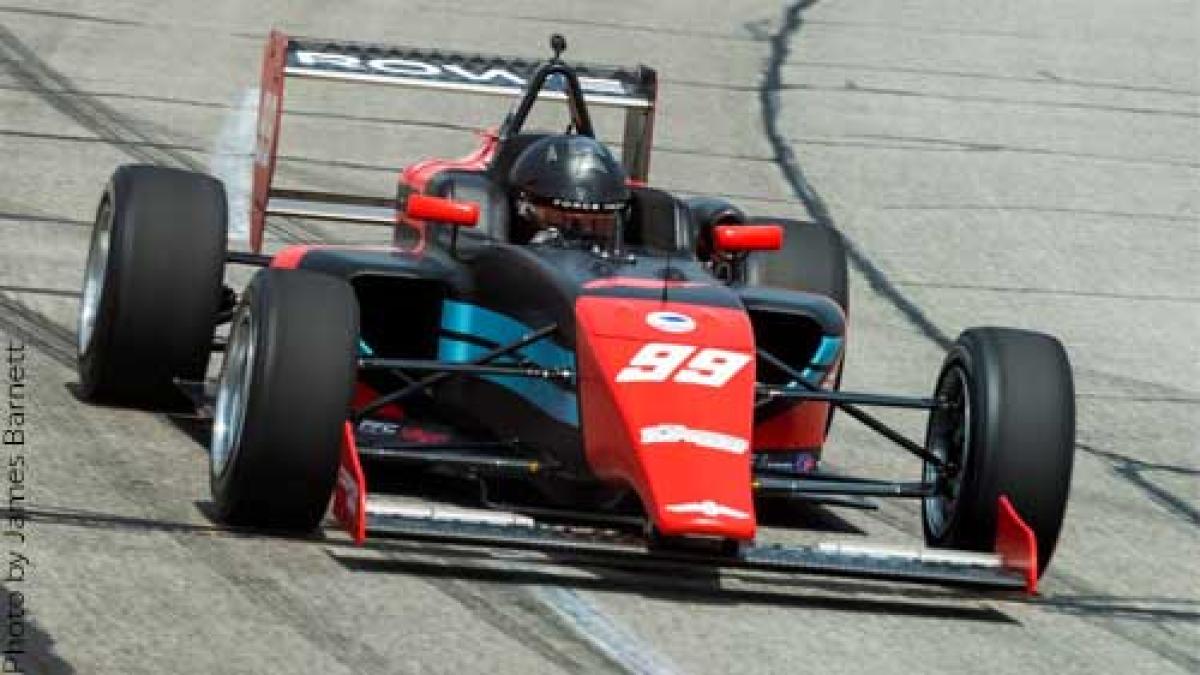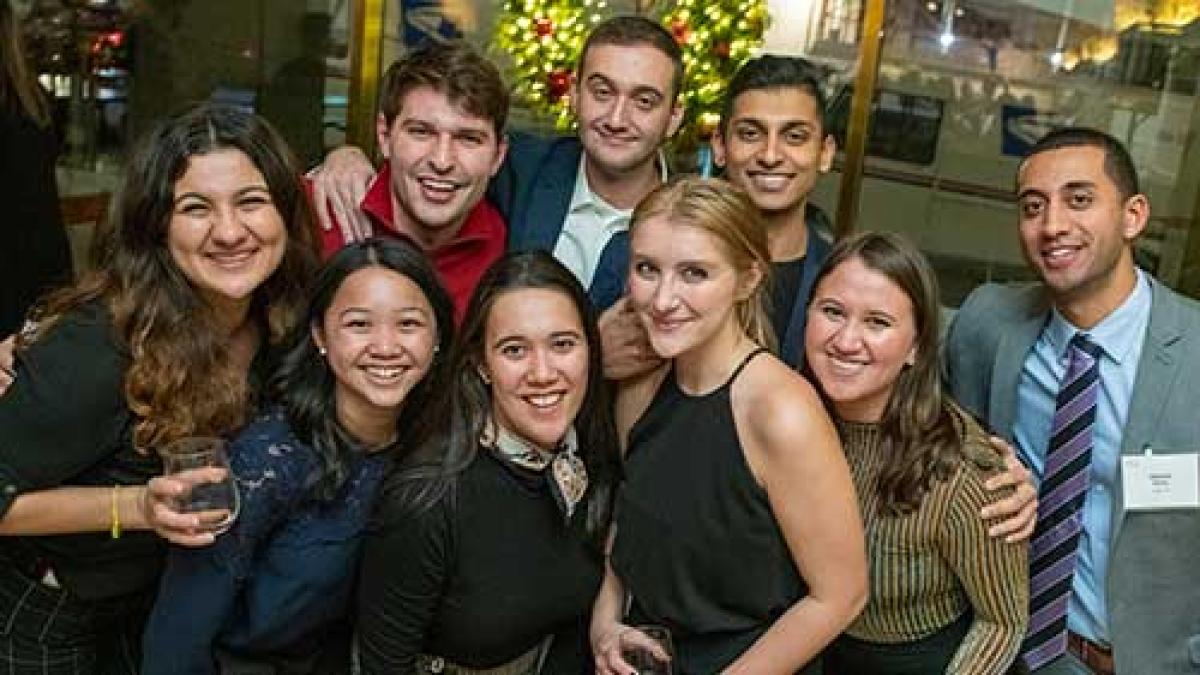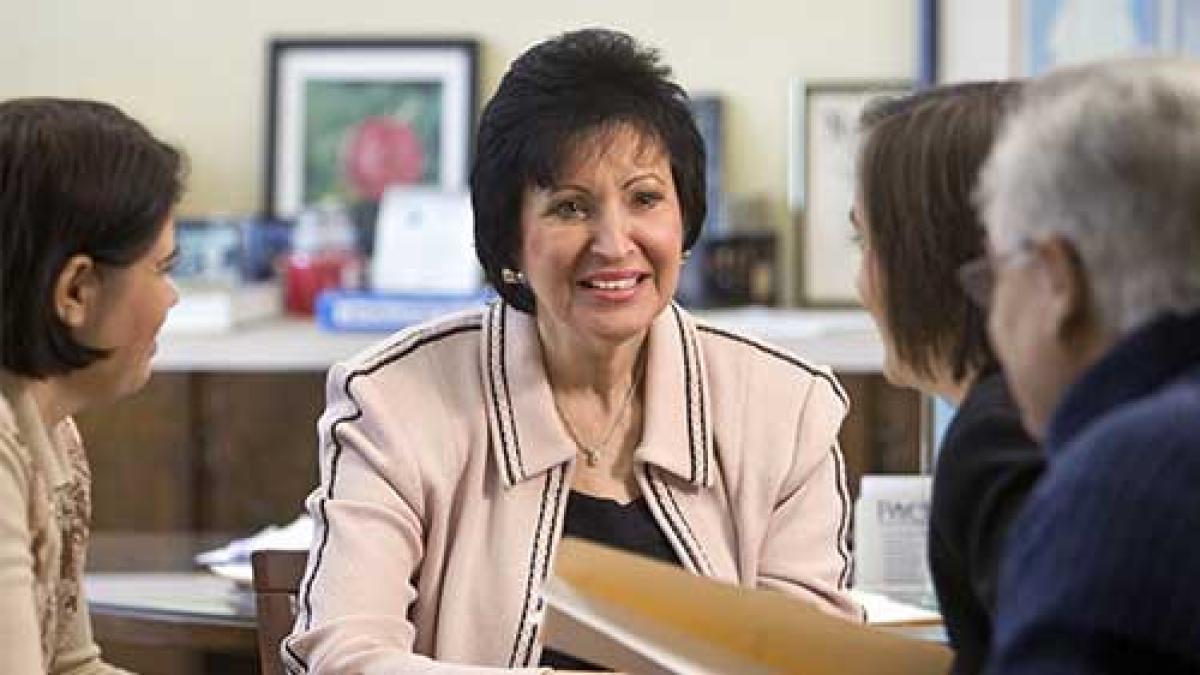With the inaugural class of Teaching Fellows, Pace University’s Faculty Center is building upon its strong foundation to become a major hub for interdisciplinary collaboration and innovation at Pace.
Forbes featured Lubin Professor Noushi Rahman in "Top Tips For Selecting The Right Incubator For Your Startup"
A New Brand for Pace
After nearly two years of research; evaluation; drafting; and input from Pace students, faculty, staff, and alumni, Pace has created a new brand platform, and with it, a new expression of what it means to be part of the Pace Community.

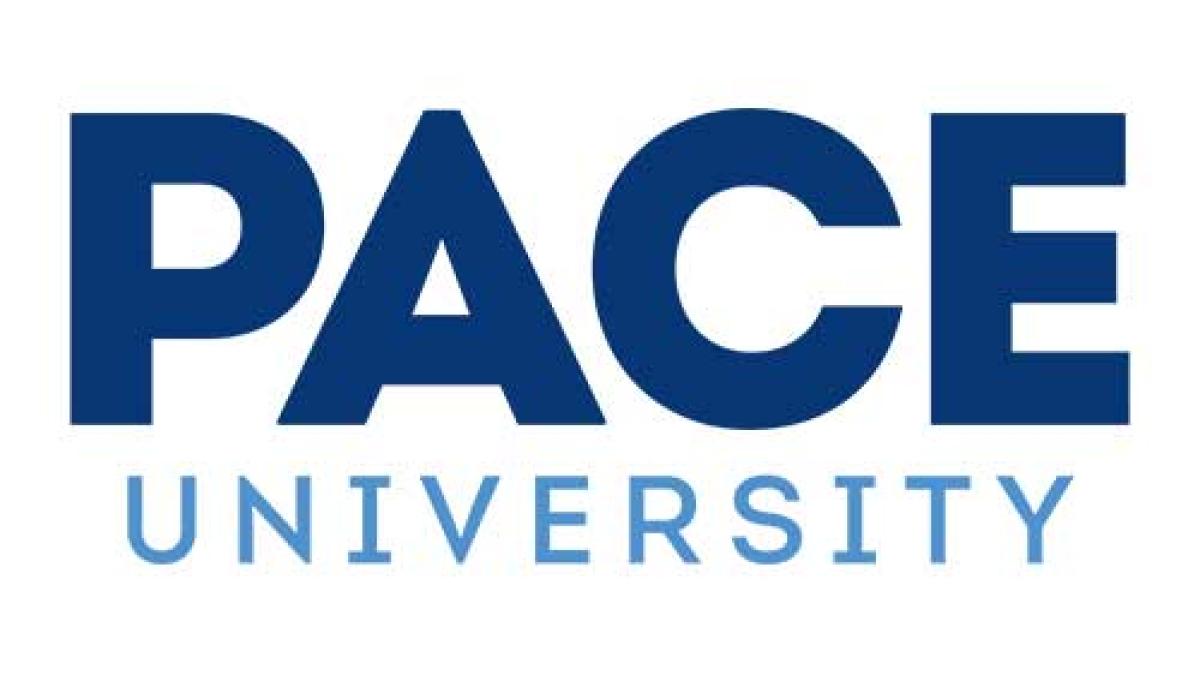
View the full issue of Pace Magazine.
After nearly two years of research; evaluation; drafting; and input from Pace students, faculty, staff, and alumni, Pace has created a new brand platform, and with it, a new expression of what it means to be part of the Pace Community. In partnership with our branding agency, Mindpower, we’ve created a new branding platform with the following objectives:
- To develop a distinctive, compelling, and cohesive brand identity;
- Provide a platform that supports the overall goals of the University; and
- Enhance consistency of messaging throughout your time at Pace, from prospective student to current student to alumni.
The brand strategy, borne out of the research, is to solidify and advance Pace’s position as a leader in creating opportunity through its strong academics, exceptional experiential learning offerings, and dedicated advising. The new branding platform empowers Pace to communicate these messages while celebrating the strong shared sense of optimism and ‘can-do’ spirit within our community.
Our new wordmark is a highly visible aspect of the branding initiative—you’ve likely already started to see this new wordmark replace the old “swoosh” logo. Simple and straightforward, the new Pace wordmark is bold, optimistic, simple, and unembellished.
In addition to the wordmark, we’ve begun introducing new messaging and visual designs within our new brand platform, including new web design (you're in it right now!), videos, banners, and signs. You’ll also see new stories about students, faculty, and alumni using this new design, not to mention updated emails and much more. This is an exciting time to be part of the Pace Community!
More from Pace Magazine
Pace has spent the past several years taking undergraduate research to the next level. Read about how the newly formed Center for Undergraduate Research Experiences (CURE) is empowering Pace students to make impressive strides in student research.
In a year unlike any other, the transformative power of Pace has the ability to uplift and hearten. Here are just a few of our most inspiring Pace moments.
The Buzz Around PaceDocs
Though disrupted by the global pandemic, the students of PaceDocs got to explore the future of filmmaking through their most recent documentary, Bee Aware.
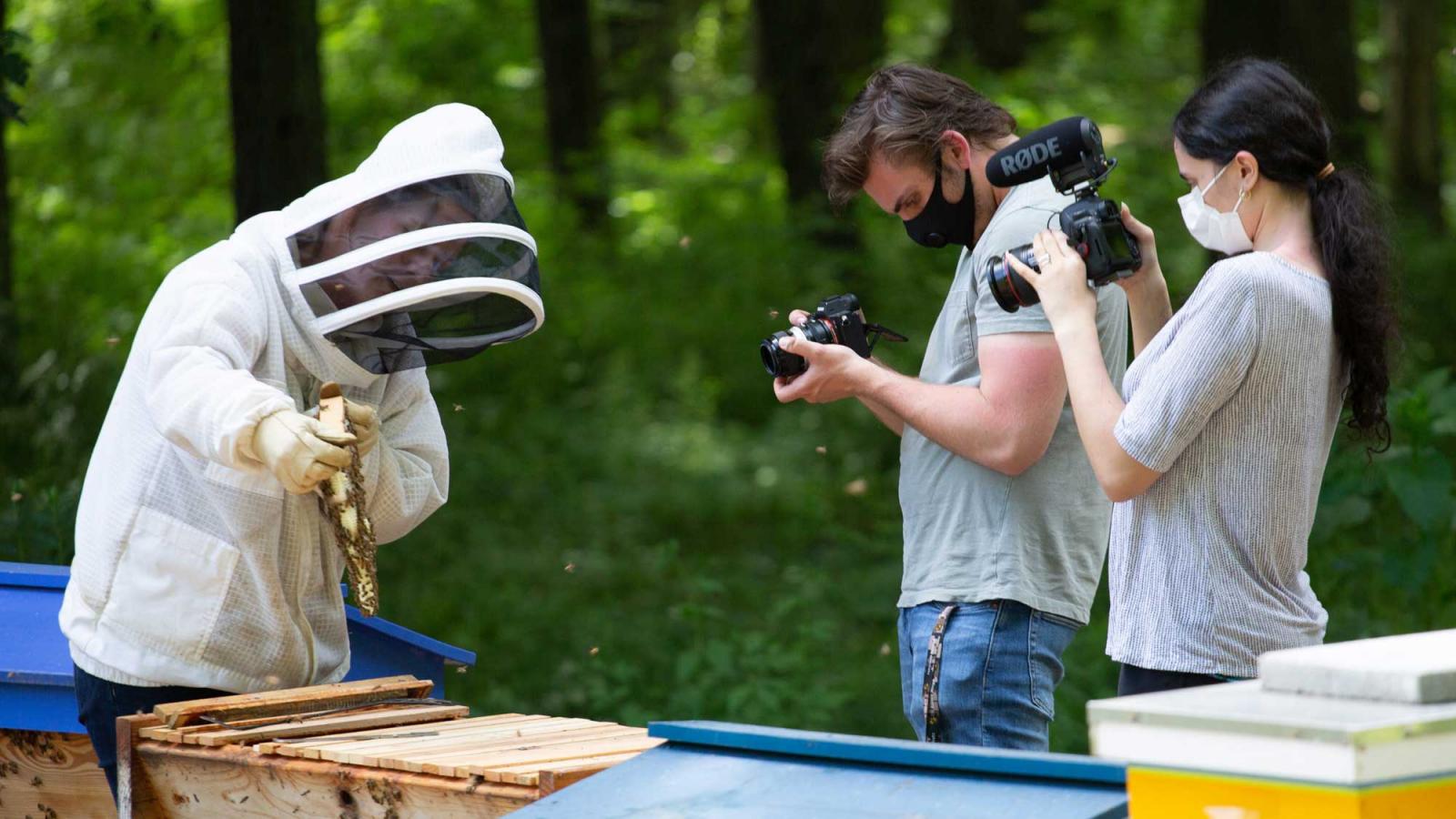
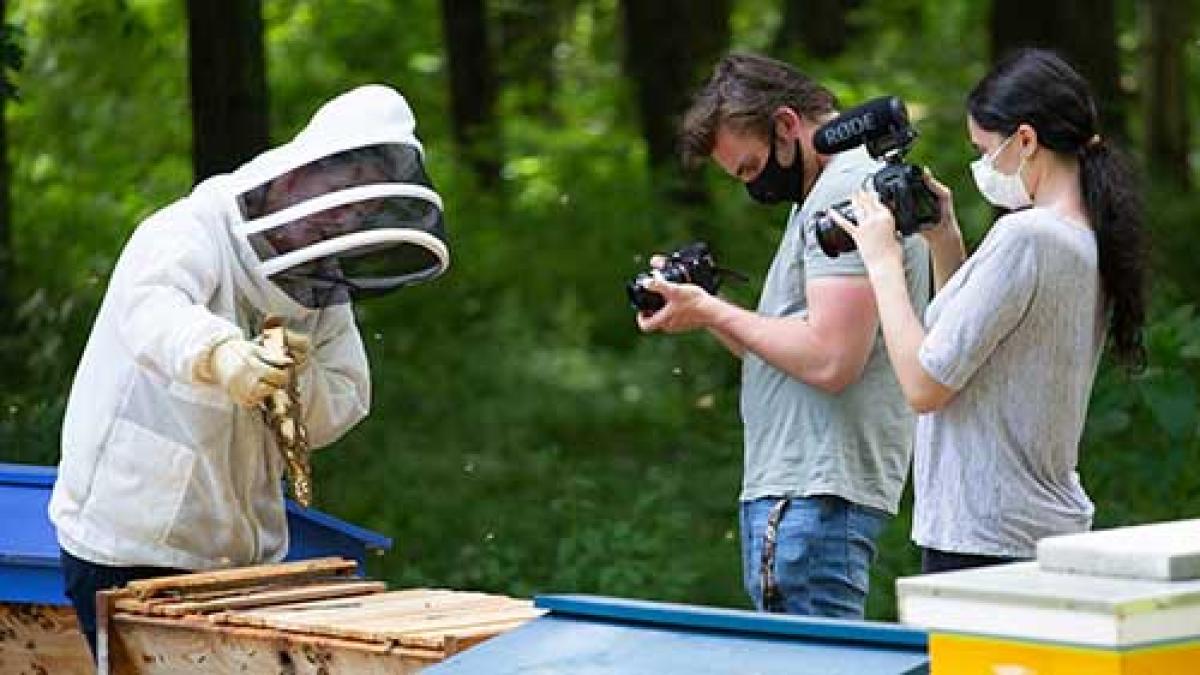
View the full issue of Pace Magazine.
A Pace University film class—made up of 20 graduate and undergraduate students from around the country—was set to embark on a trip to Paris, France, last spring to produce a documentary on urban beekeeping and spotlight the rooftop bees that survived the historic Cathedral of Notre Dame fire.
Passports were secured. Tickets were booked. And all of the groundwork and arduous pre-production work, including setting up interviews and securing location approvals, were complete for a week-long shoot overseas. For many of these students, it would be a working Spring Break unlike most others.
But that was March 2020.
Weeks prior to the scheduled departure, the global pandemic ensured all international travel came to a halt, and the University, like most others around the world, immediately pivoted to remote learning.
The disappointment was real. The frustration palpable. But it was also short-lived, as these filmmakers—known as the PaceDocs Team—knew the show must go on.
Professor Maria Luskay, EDd, whose “Producing the Documentary” course is part of the Department of Media, Communications, and Visual Arts on Pace’s Pleasantville Campus, is a highly-regarded program, garnering over 34 prestigious film festival awards to date. (She’s been teaching the class for more than 20 years.)
“The experience I had was invaluable,” said Austin Braun, a graduate student. “We had a special experience. We learned how to produce a film online. We learned that we can make a powerful film with all of the technology we have… It’s the future of filmmaking.”
Professor Luskay (also the showrunner, or director), assisted by Professor Lou Guarneri, scrambled and came up with “Plan Bee.” They dispatched this group of budding filmmakers to beekeepers closer to home—New York, New Jersey, Connecticut, Pennsylvania, and Massachusetts.
Now, roughly a year after the initial setback and long after their class had ended, the PaceDoc Team’s film premiered on April 22, 2021—Earth Day.
“The experience I had was invaluable,” said Austin Braun, a graduate student from Stockholm, New Jersey. “We had a special experience. We learned how to produce a film online. We learned that we can make a powerful film with all of the technology we have… It’s the future of filmmaking.”
While it may very well be a sign of things to come in the industry, getting there was no small accomplishment. In addition to finding new locations to film and experts to speak with over the summer, the class had to learn how to edit together while working remotely across the region.
“We worked our tails off,” Braun added. “Through hard work and determination, we got it done.”
More from Pace Magazine
In a year unlike any other, the transformative power of Pace has the ability to uplift and hearten. Here are just a few of our most inspiring Pace moments.
The School of Education has combined forces with Pace's OASIS program to get students on the autism spectrum career-ready by using virtual reality avatars to simulate a job interview scenario.
Have you earned your undergraduate degree within the last 10 years? Looking to forge a deeper connection to your alma mater? Consider becoming involved in Pace University Alumni Office's Graduates of the Last Decade program.
Westfair Online featured Pace University's Lubin School of Business in "Pace partners with state, county business councils for polls"
Yahoo News featured Lubin Professor Andrew Coggins in "Post-COVID cruising: The ships are back at sea, but where can they go?"
Finding Their Voice
When Christine Suddeth ’21 enrolled in the Pace School of Performing Arts as a musical theater student, she was in the midst of recovering from a voice injury—one that her voice teacher, PPA Professor Amanda Flynn, helped her recover from. Her injury and subsequent recovery led her down a path of research and investigation.
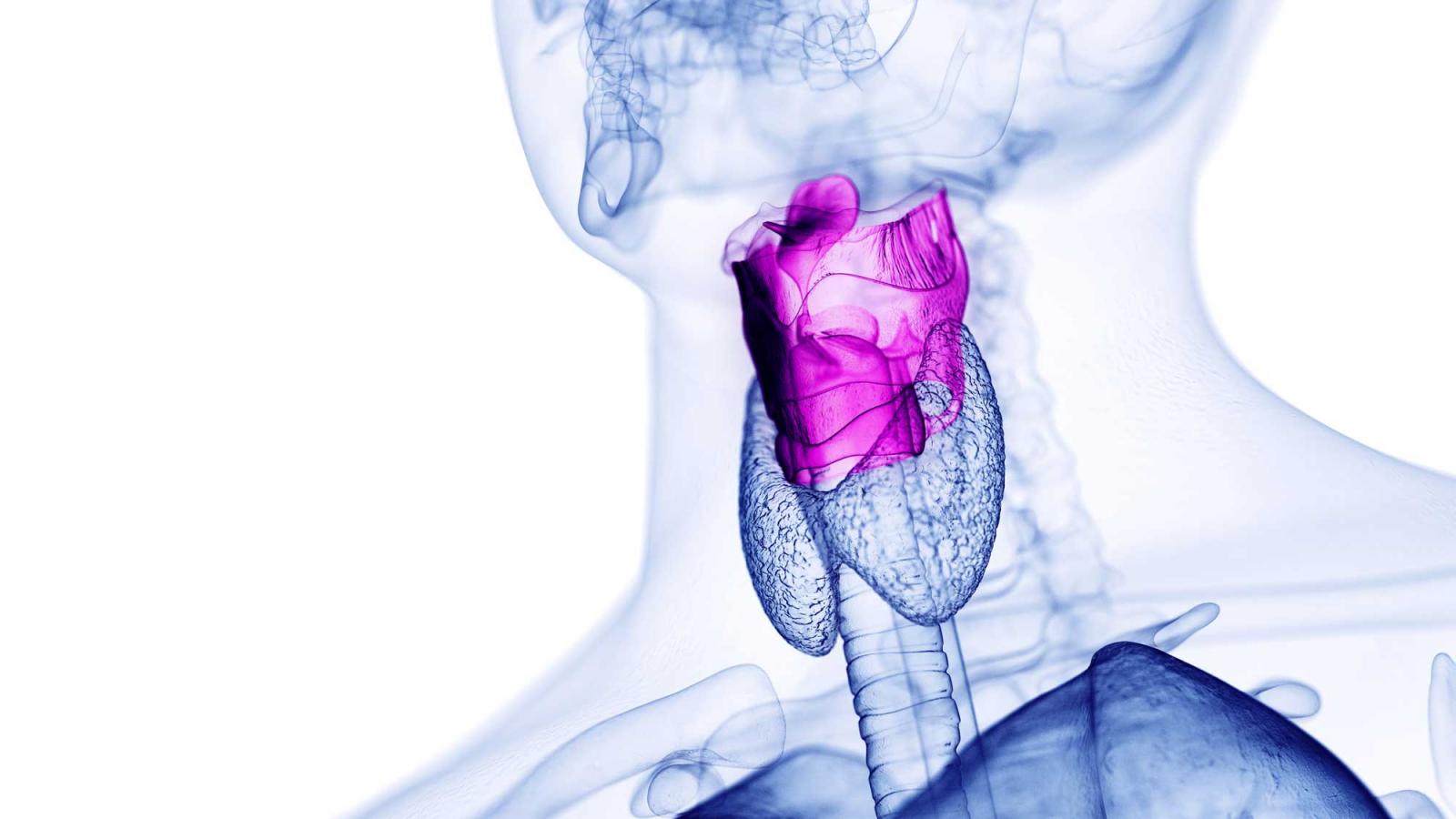
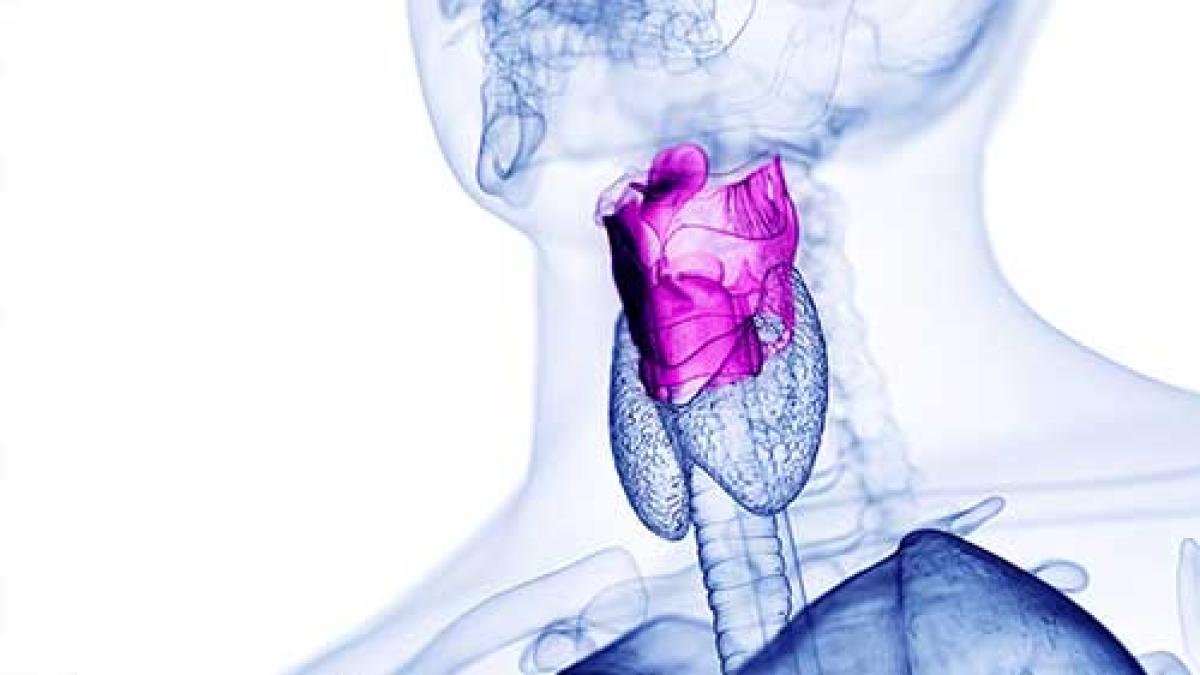
View the full issue of Pace Magazine.
When Christine Suddeth ’21 enrolled in the Pace School of Performing Arts as a musical theater student, she was in the midst of recovering from a voice injury—one that her voice teacher, PPA Professor Amanda Flynn, helped her recover from. Her injury and subsequent recovery lead her down a path of research and investigation.
When Christine Suddeth ’21 enrolled in the Pace School of Performing Arts as a musical theater student, she was in the midst of recovering from a voice injury—one that her voice teacher, PPA Professor Amanda Flynn, helped her recover from.
“I suffered a voice injury in high school and went through a hard recovery process. When I came to Pace, Amanda helped me rehabilitate and get me back to where I was—and further,” said Christine.
Several years later, as she began to conduct her honors thesis, an opportunity came around for Christine to channel that experience for the better—Flynn had emailed a select group of students inviting them to apply to the Provost’s Undergraduate Student Faculty Research program. Sensing an opportunity to broaden her undergraduate experience, Christine immediately went for it—one email later, and Flynn and Christine started brainstorming potential topics.
“I have a published paper in the Journal of Voice looking at vocal health in undergraduate performing arts training programs—looking at how we teach vocal health, is it effective, are students able to navigate through their performing careers—this survey study left a lot of questions,” said Flynn. “Christine got excited at looking at the student experience going through a very intense, fast-paced BFA program coming in injured. We crafted this survey study looking at the student experience—what was it actually like to be injured in school. Christine is also a psychology minor, so this was a nice tie-in.”
Flynn and Christine developed a thorough survey study, and with considerable effort to find an adequate sample size of individuals who fit into the research category, were able to analyze and synthesize the responses to the study. The duo hopes that their findings—which will be more widely displayed through presentations at both the NCUR and the Voice Foundation, and potentially a published paper—will be used to better educate voice teachers, universities, students, and faculty as to how to best manage a vocal injury.
“Doing this research opened my mind a bit more—as a performing arts major, you can get tunnel vision,” said Christine. “It was liberating in a way that I could expand my breadth of study.”
“I’m grateful that Pace has such an initiative to get undergraduate involved in research because I think it’s a really fulfilling experience,” said Flynn. “You learn a lot, and it opens people’s minds that there’s more out their than what they’ve been doing for the last four years.”
More from Pace Magazine
With the inaugural class of Teaching Fellows, Pace University’s Faculty Center is building upon its strong foundation to become a major hub for interdisciplinary collaboration and innovation at Pace.
When does a career become passion? When you’re able to use your skills, talent, and education for the greater good. It’s something Harriet Feldman has been doing for more than five decades, starting from her graduation from a diploma nursing school.
The School of Education has combined forces with Pace's OASIS program to get students on the autism spectrum career-ready by using virtual reality avatars to simulate a job interview scenario.
Health Data and the Law
As the COVID-19 pandemic took hold of the world, the intersection between public health, safety, technological data, and the law became rather complicated. These questions prompted Joseph Peterson '22 to formulate a research topic titled “Who Has Your Health Data, What Are They Doing with it, and What Can You Do About it?: Legal and Technological Issues Related to Contact Tracing of COVID-19 Infections.”
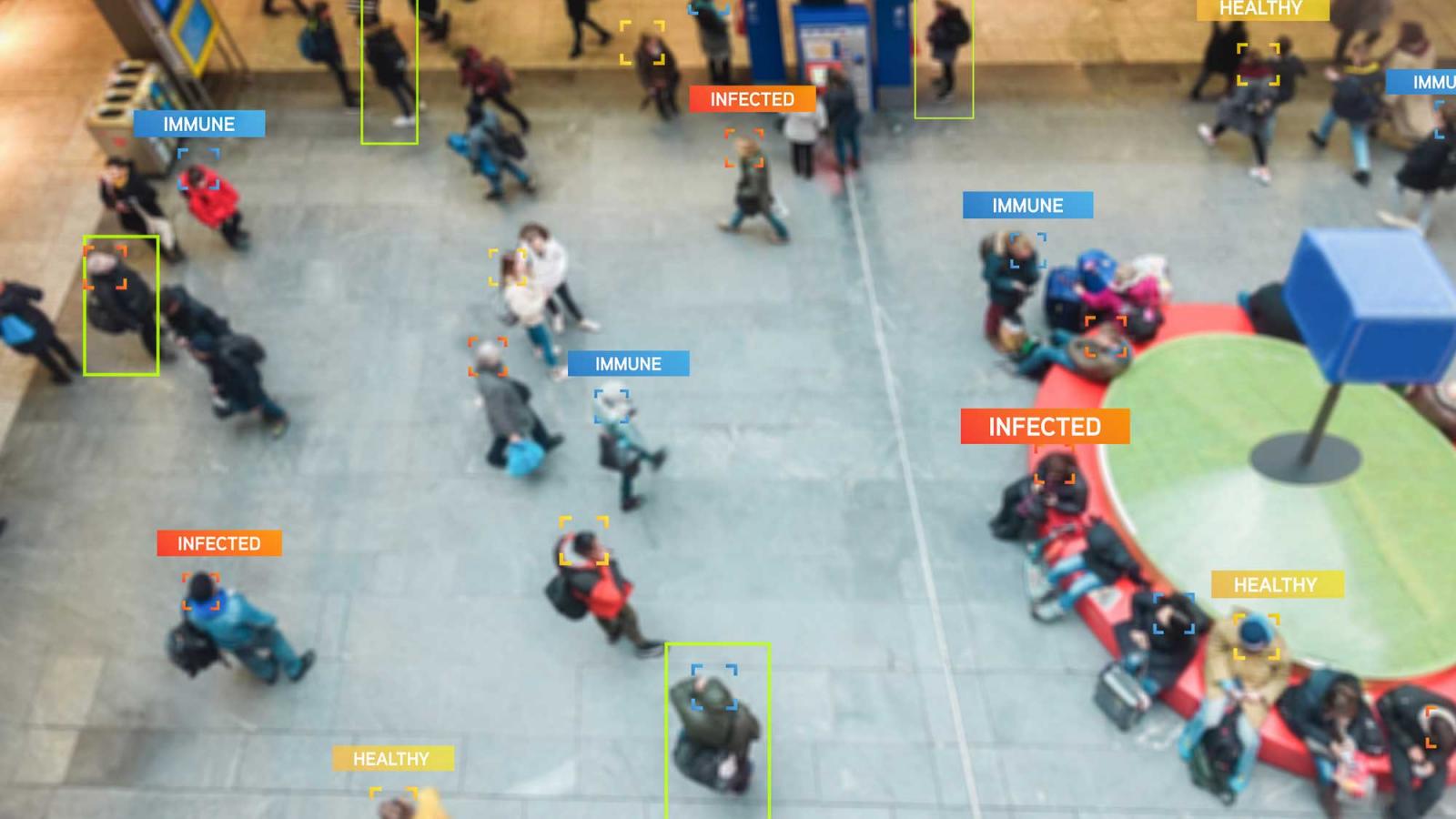
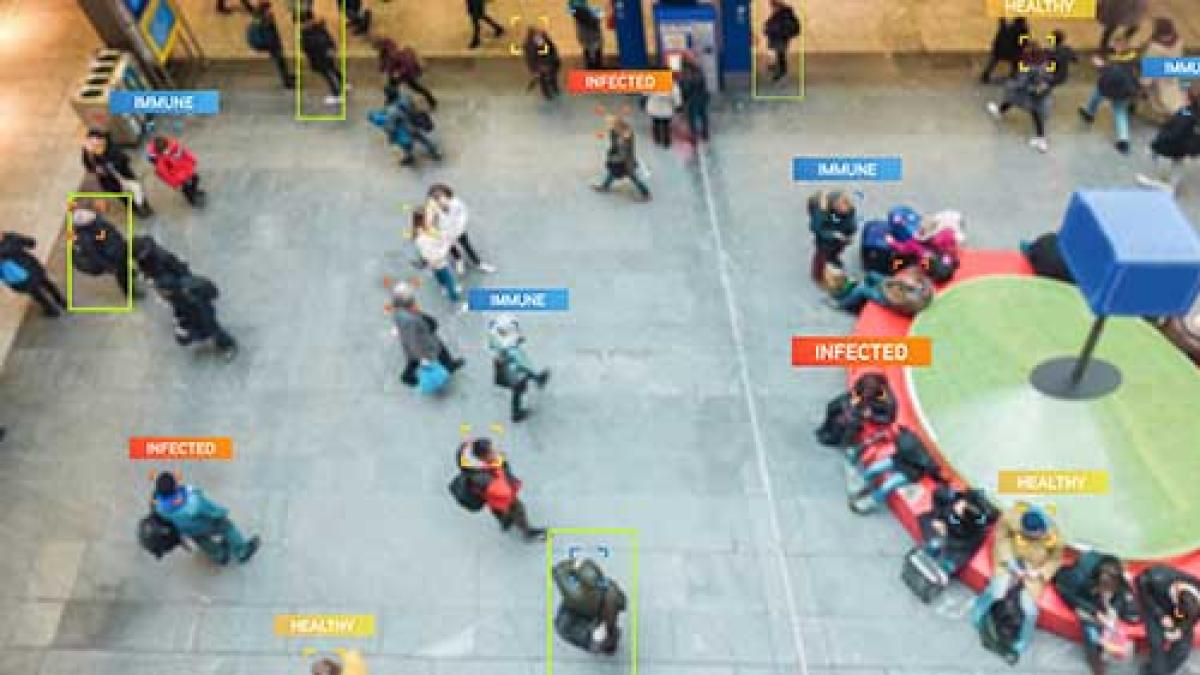
View the full issue of Pace Magazine.
As the COVID-19 pandemic took hold of the world, the intersection between public health, safety, technological data, and the law became rather complicated.
“I took Professor Magaldi’s Digital Media Law Class. It got into interesting territory—we really focused on how new media and the law meshes together—how new technologies are introduced, and how the law catches up or doesn’t catch up, and how you might interpret that,” said Lubin student Joseph Peterson ’22.
Peterson was thinking about these ideas at a time in which they were arguably more prevalent than ever. As the COVID-19 pandemic took hold of the world, the intersection between public health, safety, technological data, and the law became rather complicated. These questions prompted Peterson to formulate a research topic titled “Who Has Your Health Data, What Are They Doing With It, and What Can You Do About It?: Legal and Technological Issues Related to Contact Tracing of COVID-19 Infections.”
Thus, with the assistance of Lubin's Ivan Fox Professor and Scholar of Business Law Jessica Magaldi, JD, Peterson dove into the contract tracing process, and spent his summer working with Magaldi and conducting empirical research focusing on the intersection between the law and different contract tracing policies; interpreting laws; and doing a ton of reading to better understand the vital and contingent relationship between health information and personal privacy.
Through the Provost’s Undergraduate Student-Faculty Research award, Peterson, an arts and entertainment management student, was able to fully immerse himself in a subject previously unfamiliar to him. The experience has really enabled him to reimagine what is possible for both his education, and his career going forward.
“I’ve never thought law was something I could understand. It’s really cool that I can. It shows that if you really focus and learn something, you do learn it,” he said.
Magaldi, who has worked with students in a research capacity for quite a long time, finds the current model of student-centered research espoused by the Office of the Provost and Center for Undergraduate Research Experiences to be effective, rewarding, and a great way to empower student researchers.
“Joe did the work. I was a sounding board, but he was the driving force behind it,” said Magaldi. “My role is to support, assist, lift up—I was incredibly impressed with Joe’s work. He defined his research goals and determined where he was going with his project.”
More from Pace Magazine
In a year unlike any other, the transformative power of Pace has the ability to uplift and hearten. Here are just a few of our most inspiring Pace moments.
After nearly two years of research; evaluation; drafting; and input from Pace students, faculty, staff, and alumni, Pace has created a new brand platform, and with it, a new expression of what it means to be part of the Pace Community.
The leaders of tomorrow are right here at Pace—something that the business and technology today have duly recognized.
Behavioral Economics, the Media, and COVID-19
When her summer internship plans fell through as a result of COVID-19, Isabelle Labianco '22 was able to rebound quickly. She spent the next several months researching the intersection between behavioral economics and media messaging; particularly, how they combined in a rather unique fashion during the early months of the pandemic.


View the full issue of Pace Magazine.
When her summer internship plans fell through as a result of COVID-19, Isabelle Labianco '22 was able to rebound quickly. She spent the next several months researching the intersection between behavioral economics and media messaging; particularly, how they combined in rather unique fashion during the early months of the pandemic.
When her summer internship plans fell through as a result of COVID-19, Isabelle Labianco '22 was able to rebound quickly. Instead of a summer in an office cubicle, Isabelle was accepted to the Provost’s Summer 2020 Student-Faculty Undergraduate Research award program, and spent the next several months researching the intersection between behavioral economics and media messaging; particularly, how they combined in a rather unique fashion during the early months of the pandemic.
“I was talking with my dad; we had the news on while we were chatting. I remember listening to what was going on in the news and seeing and remembering how people might use that information to make decisions,” said Isabelle. “I decided I wanted to look at how the news affected consumer behavior in the early months of the pandemic.”
Specifically, Isabelle looked at how the news media affected consumer behaviors at grocery stores. The results she found were quite interesting.
“What we found was that consumers who relied on the media as the main educational point throughout the pandemic were influenced in their consumer patterns at grocery stores,” said Isabelle. “For consumers who watched news outlets that were more left leaning, they demonstrated behaviors including stockpiling; mass purchasing of items at one time to sustain their need. On the other hand, we found more right leaning news consumers demonstrated the virus as less of a risk—we called that the 'status quo' bias.”
In addition to presenting at the National Conference of Undergraduate Research, Isabelle presented at the Eastern Economics Association Conference—an experience that both Isabelle and her faculty advisor, Dyson Economics Professor Joseph Morreale, PhD, highly valued.
“We have found over the years that it’s really important to have students do this kind of innovative research,” said Morreale. “In Isabelle’s case, she’s crossing two disciplines. Secondly, the experience going to a conference to deliver the paper gave her tremendous feedback—which she would not have necessarily gotten if she was just here. We’re hopeful that once it’s revised, we’ll try to get it published. We think it’s valuable enough to put forward.”
More from Pace Magazine
Pace has spent the past several years taking undergraduate research to the next level. Read about how the newly formed Center for Undergraduate Research Experiences (CURE) is empowering Pace students to make impressive strides in student research.
As the COVID-19 pandemic took hold of the world, the intersection between public health, safety, technological data, and the law became rather complicated. These questions prompted Joseph Peterson '22 to formulate a research topic titled “Who Has Your Health Data, What Are They Doing with it, and What Can You Do About it?: Legal and Technological Issues Related to Contact Tracing of COVID-19 Infections.”
When Christine Suddeth ’21 enrolled in the Pace School of Performing Arts as a musical theater student, she was in the midst of recovering from a voice injury—one that her voice teacher, PPA Professor Amanda Flynn, helped her recover from. Her injury and subsequent recovery led her down a path of research and investigation.
